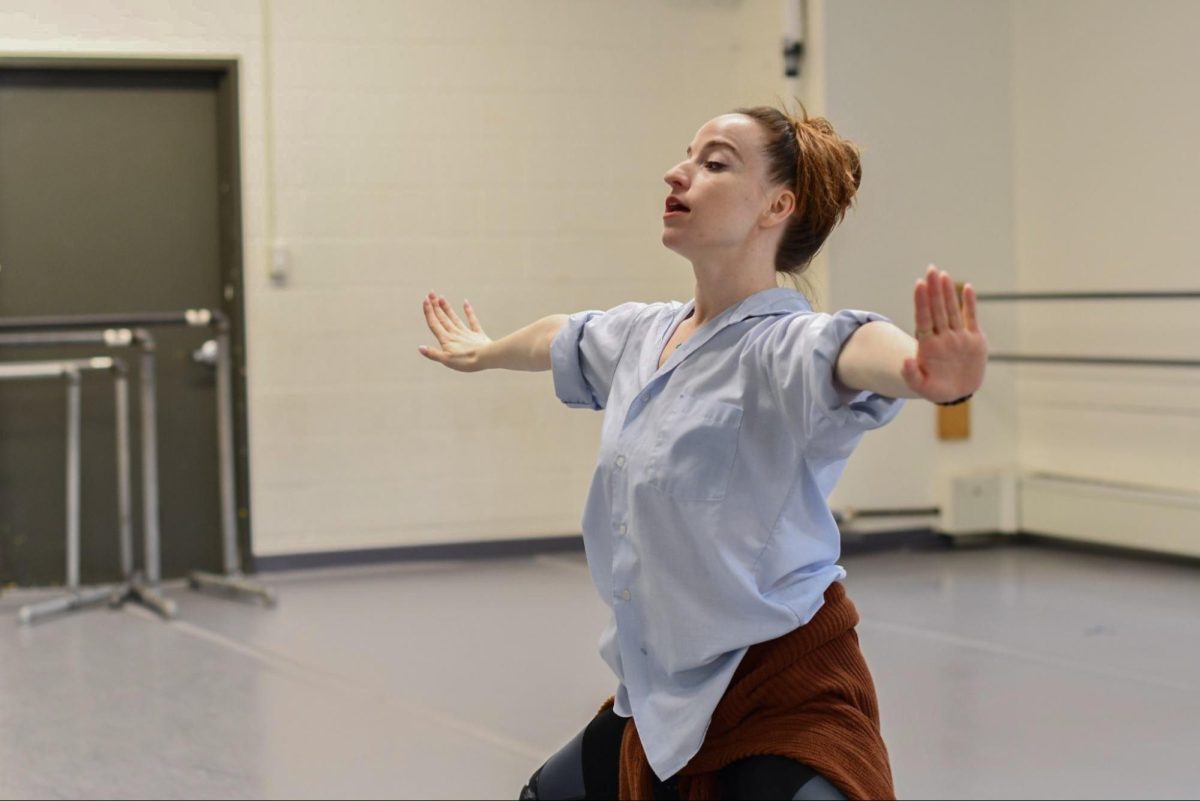Dance teacher Jane Sawyer steps into a bleak gray room, where eight women are waiting patiently in bland, shapeless uniforms. Ms. Sawyer, introducing herself, tells the room that nothing in this dance class will be mandatory. In jail, there is already too much regulation.
Since January 2019, Ms. Sawyer has been working with Cook County Arts Collective to hold dance classes for female inmates at the Cook County Jail. There, she works to help incarcerated women realize their bodies are a resource for freedom, even amid confinement.
When Ms. Sawyer first began teaching in the jail, she said, the experience was “daunting.” She feared not doing right by the women who chose to dance with her.
“I decided, OK, I’m going to be completely adaptable,” Ms. Sawyer said. “I’m going to basically make each dance class a group project.”
Nelly McGovern, a senior at Whitney Young High School, has been working with Ms. Sawyer on her senior project. She credits much of Ms. Sawyer’s success to her adaptability, discussing the accommodations Ms. Sawyer makes for her students.
“For example, a lot of trauma survivors. They have trouble when you say, ‘OK, now close your eyes and focus on your breathing,’ right? Because then they’re just focusing on how they feel in their bodies,” Nelly said. “And a lot of people who have unprocessed trauma have trouble just focusing on their own self. They’re trying to escape that.”
Instead, Ms. Sawyer has her students focus on body temperature, breath and heart rates, allowing them to feel more at ease.
“I do get feedback that it’s just like a reminder, a calling back to yourself when you decide to move your body any amount with gentleness and compassion for yourself,” she said.
Getting to know these women has been a “radicalizing” experience for Ms. Sawyer.
“I definitely am a supporter of decarcerating the jails and decarcerating the prisons, letting as many people go as possible,” she said.
Because she works in a jail rather than a prison, Ms. Sawyer only teaches women who are waiting for their trial.
“It’s supposed to be a temporary place, but because of budget cuts and a lack of oversight and just a whole mess of other things there are people who are there for years at a time,” she said.
Ms. Sawyer has known women who have been waiting for their trial date for seven or eight years. While she doesn’t claim to be an expert on incarceration, Ms. Sawyer believes that economic and racial prejudices factor into delays.
“Often being poor is the crime that people are being punished for,” she said.
Ms. Sawyer does not have answers to these problems, but she does give incarcerated women the opportunity to feel at home in their own bodies.
“No matter where you’re coming from,” she said. “I think you’re still deserving of a positive, optional, gentle, compassionate movement experience.”
Music fills the room; women dance in sharp movements. Heads turn to the right, then the left, rolling down, and back up. Ms. Sawyer’s voice leads the exercises as she calls for tondues and drop-swings. Today, the group had decided on a more rigorous class and their exhales can be heard over the music. Their arms slice through the stale air, spreading wide as they plié.





















































